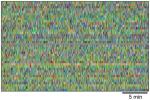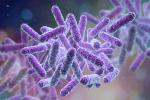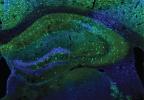Study suggests adults with both the sleep disorder and COVID may benefit from clinical monitoring
Press Releases
Image

Image

Monday, May 8, 2023
Scientists at the National Institutes of Health have identified new genetic risk factors for two types of non-Alzheimer’s dementia.
Image

Friday, May 5, 2023
Findings offer insight into biological mechanisms, pointing to possible treatments
Image

Monday, April 17, 2023
The Department of Veterans Affairs (VA) and National Institutes of Health have launched a study to gain a better understanding of the chronic symptoms of Gulf War Illness.
Image

Friday, February 24, 2023
By using state-of-the-art technology to analyze patterns of behavior in mice with epilepsy, researchers may be able to better study the disorder and identify potential treatments.
Image

Monday, February 20, 2023
In a small study, researchers used a device that stimulates the spinal cord to restore arm and hand mobility in two stroke patients, allowing them to perform daily life activities, such as using a fork to eat a meal.
Image

Wednesday, February 8, 2023
Researchers have found differences in the gut microbiomes of people with myalgic encephalomyelitis/chronic fatigue syndrome (ME/CFS) compared to healthy controls.
Image

Thursday, February 2, 2023
Human spinal cord cell atlas provides foundation to study neurodegeneration, chronic pain, and other diseases.
Image

Tuesday, November 1, 2022
Using a mouse model, researchers have discovered a new daily rhythm in a type of synapse that dampens brain activity.
Image

Wednesday, September 14, 2022
Today, the U.S. Food and Drug Administration and the National Institutes of Health (NIH) announced the launch of the Critical Path for Rare Neurodegenerative Diseases (CP-RND)—a public-private partnership aimed at advancing the understanding of neurodegenerative diseases and fostering the development of treatments for amyotrophic lateral sclerosis (ALS) and other rare neurodegenerative diseases.
